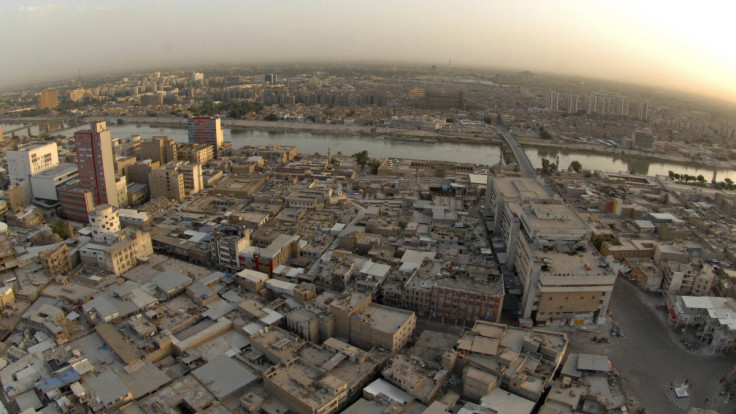Iraq: Helicopters and vehicles hunt for 'kidnapped' Americans

A number of US citizens who went missing in Baghdad were kidnapped, an Iraqi government intelligence official has said. Helicopters have been dispatched to search for the people while checkpoints have been set up as vehicles comb the streets in an effort to track down the Americans.
The contractors were taken on 15 January, along with their interpreter from the Dora neighbourhood in southern Baghdad. The group – said to be three US nationals – was abducted from their interpreter's home and taken to Sadr City in north-eastern Baghdad, where "all communications and contact stopped", the intelligence official told the Associated Press (AP).
The US embassy in the Iraqi capital confirmed on 17 January that "several" Americans had gone missing. Embassy spokesman Scott Bolz said: "We are working in full cooperation with Iraqi authorities to locate the missing Americans". John Kirby, the US State Department spokesman, said: "The safety and security of Americans abroad is our highest priority", but refused to elaborate due to "privacy considerations".
An unidentified police officer told Reuters that there is "no clear indication about the circumstances of their disappearance." The individuals reportedly work for US companies as "contractors or trainers" at the airport.
No group claimed responsibility for the abductions, but the Islamic State (Isis/Daesh) group has said that it was behind a string of attacks last week in Baghdad and the surrounding Diyala province, which killed 50 people. Shia militants and criminal gangs have also been known to conduct kidnappings in the past, demanding ransom payment in return for hostages.
Last week's bloodshed disrupted a period of relative calm in Baghdad, with sectarian conflict taking centre stage once more as IS stormed a shopping centre and killed 18 people in an attack targeted at Shia Muslims. The incident also injured 40 others.
IBTimes UK contacted the US embassy in Baghdad for comment, but had not heard back from the department at the time of publication.
© Copyright IBTimes 2025. All rights reserved.




















